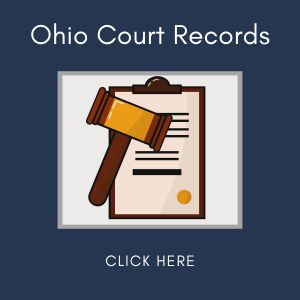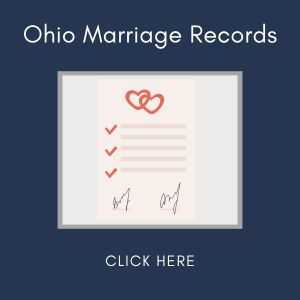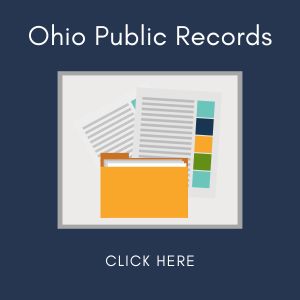Search Criminal, Court, Public, Police, Traffic Records, Person Info and More!
Search Billions of Public Records
Always Getting Updated… From Top Notch Databases.
Fast Access… Search Records From All Over The Nation.
Ohio Public Records
Public records in Ohio are documents or information that are open to public access and free from confidentiality. In Ohio, these are maintained by government institutions and often feature a variety of materials like official documents, maps, recordings, films, photographs, and other media. Collectively, these records catalog Ohio governmental matters or affairs authenticated by public agencies.
The Freedom of Information Act (FOIA) ensures public access to government records, thereby fostering transparency and helping citizens stay informed about governmental actions and decisions. Ohio, like every state, adapts this principle within its unique laws, refining the scope of access to more accurately serve local needs and contexts (Sunshine laws).
Enhancing transparency and accountability in Ohio government processes is the primary reason for making records accessible to the public. Making these records readily available underscores the expectation for government officials to perform their duties with integrity and according to the legal framework.
Typical Ohio Official Record Types.
Accessing public records online in Ohio?
Franklin County
Cuyahoga County
Hamilton County
Summit County
Montgomery County
Lucas County
Butler County
Stark County
Lorain County
Warren County
Once you know where to go and how to search, accessing public records online becomes simple. A variety of Ohio public records can be accessed through several state government websites. Thanks to digital accessibility, Ohio public records can be accessed for research without the need for offline visits.
Public records are available at which levels of government in Ohio?
Each level of government—federal, state, and local—maintains public records according to specific laws and regulations that control access. In Ohio, rules differ by agency regarding which documents need to be made available to the public and how they can be accessed.
Checking public records from a different state?
Be prepared to encounter a range of laws when seeking public records from another state. Every region, including Ohio, operates under its distinct interpretation of the Freedom of Information Act (FOIA) or an equivalent, highlighting subtle differences from the eligibility of the requester to financial implications and processing time. Thus, familiarizing yourself with the particular public records law of the state in question is crucial, affecting everything from who can access records to how you should proceed with requests.
What is the Freedom of Information Act (FOIA)?
Established in 1966, the Freedom of Information Act (FOIA) grants the public the authority to access records from any federal agency in the U.S., supporting transparency and enabling citizens to stay updated on government actions. When a FOIA request is made, agencies must disclose any related information unless it conflicts with one of nine exemptions, safeguarding aspects such as personal privacy, national security, and respect for law enforcement. FOIA facilitates public access to records held by federal agencies. The process typically requires the requester to specifically identify the required documents. Requests can generally be submitted in writing, and many agencies now also accept them online. There’s no set form for requests, but being specific can greatly enhance the efficiency of record retrieval.
In regard to accessing Ohio public records, what obstacles exist?
The task of obtaining public records can prove challenging, largely influenced by the digital nature of record preservation and the disparity of laws across different jurisdictions, including Ohio. A notable challenge is the diverse levels of access offered by different agencies and localities. In various jurisdictions, the definition of what constitutes a public record and its access protocols could differ. This suggests that procedures and ease of access can vary widely across regions, potentially confusing and impeding those trying to access records.
Before making a request for public records in Ohio, what information is necessary?
Familiarize yourself thoroughly with the Ohio public record request process to ensure it’s handled efficiently and in accordance with legal requirements. Here are a few key points to consider:
- Determine if the Information is Obtainable: Ensure the information you’re about to request is already for public consumption. Many Ohio government organizations have robust online portals filled with data and documents. This step can sidestep superfluous requests to save time and effort.
- Understand the Specific Expectations: Government sectors may differ in their approach to handling public record requests. It’s vital to identify the correct Ohio agency that holds the records you want and to learn their specific submission procedures.
- Be Specific with Your Request: Detail the specific records you are requesting. Being precise can increase your chances of receiving the exact data needed and decrease your processing time. When possible, specify the format in which you want the information provided.
- Prepare for Potential Costs: Be prepared for potential fees associated with your request, especially if it involves extensive processing or physical copies.
Checking public records for free in Ohio?
To find Ohio public records for free, one must know where and how to search. Free access to a wide variety of public records is offered through many government databases, including those at local, state, and federal levels in Ohio. Local, state, and federal agencies in Ohio commonly host a comprehensive array of public records on their websites for free.









